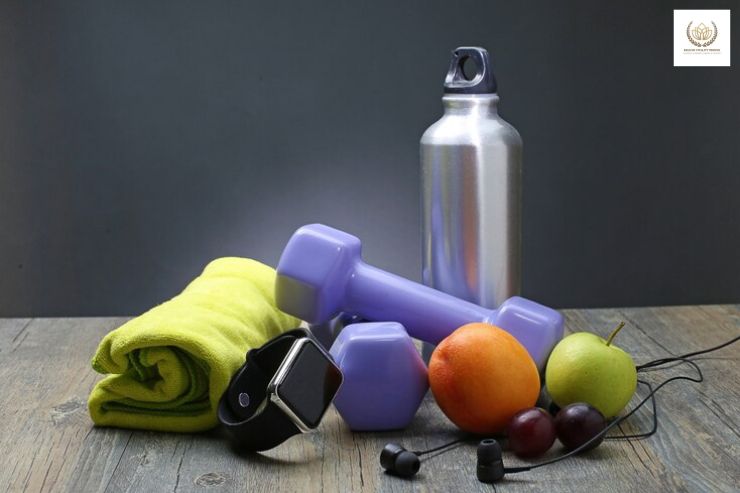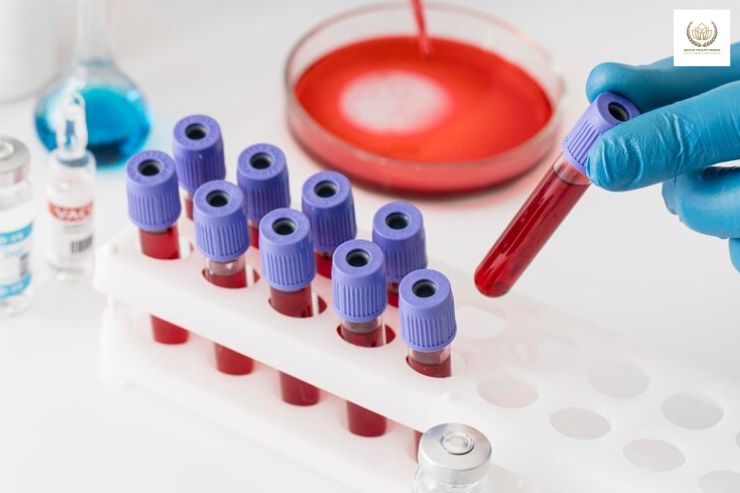If you are a person who exercises 5 to 6 times a week or you are someone who has never even stepped foot inside a gym.
I can surely say you might have definitely heard in a YouTube short or a Podcast that you need to eat more protein to build quality muscle that everyone strongly desires.
Everyone is talking about and promoting protein as the number one nutrient for muscle building.
So, why are we talking about fruits for muscle building in this blog?
It is because, when speaking about Protein, Carbohydrates and Fats, these are the nutrients that are required in large quantities for anabolic activity in the human body; that is why they are called Macronutrients.
While some fruits contain essential Minerals & Vitmains called Micronutrients, which help in essential functionality of the body, such as hormonal balance, enzyme production, and increasing immunity.
The overall combination of Macronutrients and Micronutrients is called a Balanced-Diet, which results in best performance in gym.
As you are discovering the importance of fruits for muscle building! Let’s find out which fruits are considered the best for muscle growth.
Nutrition Disclaimer: “The nutritional information provided in this article is intended for informational purposes only and should not be considered medical advice. It is not intended to diagnose, treat, cure, or prevent any disease. Always consult with a qualified healthcare professional before making any dietary changes.”

Table of Contents
Toggle10 Best Fruits for Muscle Building
These are some of the best fruits for muscle building that I personally include in various meals throughout the day. They are rich in various minerals and vitamins (micronutrients) that will help you in the muscle growth process.

BANANA has been a well-known fruit in the fitness industry, as it is considered the optimum fruit among all. The key nutrients in bananas are Potassium, Vitamin B6, Vitamin C.
Potassium promotes muscle contraction and nerve functions. Vitamin B6 supports protein metabolism and red blood cell production, while Vitamin C promotes tissue repair.

APPLES are one of the most liked fruits and are often denoted with a famous quote: “An Apple a Day, Keeps the Doctor away.”
Just as the quote states, an apple is a nutrient-rich fruit with Fiber, Vitamin C, Potassium.
Vitamin C supports the collagen synthesis in the body, which is essential for the repair of muscle tissues. And fiber helps to maintain proper digestive function and satiety.

ORANGE is known for its high Vitamin C content. It also contains Vitmain B9 and Potassium.
With a sweet and tangy flavor, orange fruit is generally preferred to eat raw or as juice in breakfast. Vitamin C present in oranges promotes tissue repair and boosts immunity. And Folate aids in DNA synthesis, which is important for a cell’s growth and repair.

KIWI is a classic citrus fruit with a size similar to a ping-pong ball. Packed with Vitamin C, Vitamin K and Potassium, it strengthens bones and supports optimal muscular function.

GUAVA is a tropical fruit and is sweet in taste when it’s properly ripened.
Similar to Kiwi fruit, Guava is high in Vitamin C content that contributes to the repair of muscular tissue. While potassium and Vitamin K in guava help in better bone health and maintain hydration in the body.

BERRIES are small yet antioxidant-rich fruits. Commonly eaten with a combination of Raspberries, Strawberries, Blueberries and Blackberries in the breakfast.
The antioxidants in berries help in reducing stress, along with high fiber providing healthy gut health.

PINEAPPLE is known for its anti-inflamatory properties. And it is very highly recommended for athletes who practise extreme physical activities such as weightlifitng and bodybuilding.
Bromelain in pineapple help with the growth and repair of muscle tissues.

AVOCADO is often mistaken for a vegetable. It is greenish in color and has a seed inside that is not edible. It is considered a highly healthy fatty fruit as it is rich in Omega-3.
These healthy fats support overall hormone production and cell membrane health. Avocado is often considered a rich person’s food, as it is more costly than other fruits.

APRICOT is small fruit with sweet and tarty taste and is about the size of a golf ball.
For muscle building, apricot is rich in Vitmain A, Potassium and Fiber. It promotes better cardiovascular health, blood pressure and gut health.

JACKFRUIT is considered the largest tree that gives a fruit. Inside the jackfruit, it consists of an edible pulp and seed.
Many prefer to eat it raw if ripened properly or cooked or sautéed. With a nutrient rich in fiber, potassium, and Vitamin C, it is considered the best vegetarian source of protein.
The minerals and vitamins in jackfruit help in the repair of the muscle tissue and provide satiety.
How Does Eating Fruits Promote Muscle Growth?
First of all, let me clear one very common myth!
Can you grow muscles by only eating fruits?
The answer is NO, you cannot just grow any muscle by eating only fruits, because fruits do not have the same amount of essential macronutrients present in them as compared to food sources such as meats, fish, oats, or brown rice, which are a direct and complete source of protein, carbohydrates, and fats.
Then why are we talking about adding fruits to the diet plan?
Understand this: Fruits contain essential minerals and vitamins such as potassium, omega-3, magnesium, iron, zinc, vitamin A, vitamin D, vitamin C, etc.
While protein is primarily considered as the building block for growth and repair for the muscle tissue, Micronutrients also play an important role, which are –
- Hormone Regulation (Testosterone in men)
- Boosting Immunity
- Hydration and Electrolyte Balance
- Protection from oxidative stress
- Repair and Growth of Muscles Tissues
- Energy production
How To Incorporate Fruits Into Your Diet?
Now knowing how important fruits are for muscle building and overall health. You might think that you could eat any fruits at any time of the day.
Well, here are some practical ways on how you can include fruits in your daily diet.
Morning Boost – When starting your day with a big bowl of oatmeal or quinoa, add half an apple or berries with it. With a side of scrambled or boiled eggs. Fiber in apples will help you feel full and will provide energy till afternoon.
Pre-Workout Fuel – Consuming fruits like bananas or kiwis can help to have a great workout session. Bananas or kiwis provide a boost of energy that increases your performance in the gym.
Post-Workout Recovery – After a workout session, it is advised to consume foods that will help you recover and prevent your body from a catabolic state to protect muscles. Pineapple or Berries help with the inflammation and work instantly for repair of muscle tissues.
Avocado is rich in healthy fats, which can be eaten in big meals of the day, which are breakfast, lunch, or dinner.
Smoothies: For getting a quick nutrition intake, many preffer to drink a smoothie specially after workout or at breakfast mix with protein supplements. In this you can get an infinite choices of combination of fruits choices.

How Much Fruits Should You Eat In a Day?
Whether your goal is muscle building, fat loss, or just eating fruits for taste. Everything has a limit on how much fruit you should consume in a day or at a time.
As per general recommendations by nutritionists, it is suggested to eat 2 to 5 servings of fruit per day.
How To Know Which Vitamin Deficiency You Have?
Any vitamin or mineral deficiency can only be determined by a blood test from a pathology lab.
Only after which a nutritionist or a registered dietitian can prescribe you a supplement or advise you what specific fruits to eat.

How Long Do Micronutrients Take to Work In The Body?
Well, there is no straight answer for this question!
As explained before, only after a proper diagnosis from a blood test can one determine what the level of deficiency of a mineral or vitamin is.
If you have a severe deficiency, then you might take supplements or eat particular foods for longer durations.
But you will surely see an improvement in your body within 2 – 3 weeks, and as long as you are advised to continue your supplementation from your dietitian.
Your Final Learnings
By the end of this blog, you completely understood the importance of Balanced-Diet.
A Balanced-Diet includes both a proper ratio of Protein, Carbohydrates and Healthy Fats which are called Macronutrients.
But our body also needs essential Minerals and Vitamins called Micronutrients. These micronutrients are often ignored, and their deficiency can cause various health issues, one of which is called Anemia.
So, a Balanced-Diet = Macronutrients + Micronutrients.
Fruits are a healthy and effective source variety of micronutrients. But it takes a special guidance from a nutritionist to diagnose if you are deficient in any of the minerals or vitamins.
By consulting with a Nutritionist, they can provide you with a customized diet plan according to your individualistic needs.

About The Author –
Aashay Edwin Maghi, is an Indian Fitness professional, a Certified Personal Trainer and an active blogger in health & fitness niche.
Leave a Reply